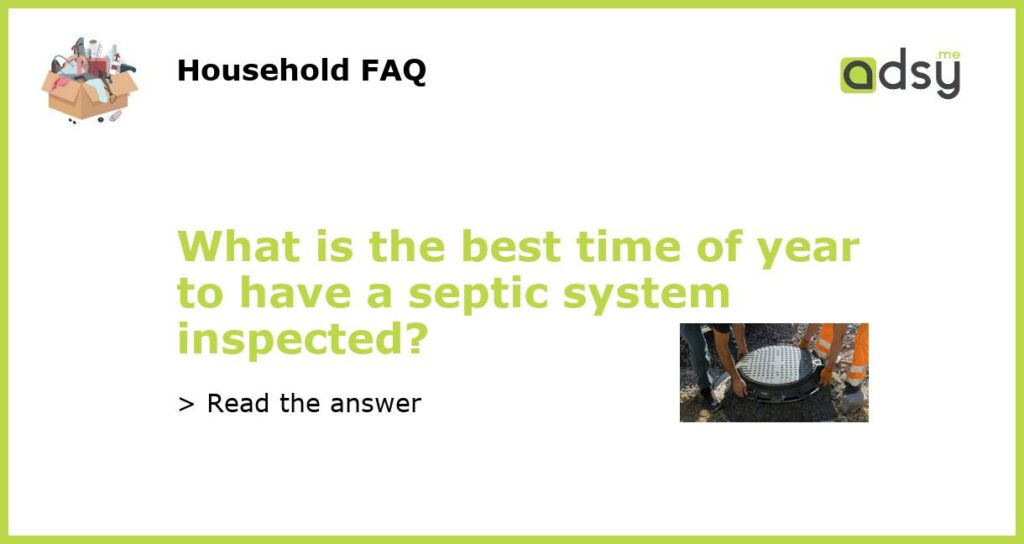The Importance of Regular Septic System Inspections
If you own a septic system, regular inspections are crucial for maintaining its functionality and efficiency. During these inspections, a professional technician will assess the condition of your system, identify any potential issues, and recommend necessary repairs or maintenance. However, the question remains: what is the best time of year to have a septic system inspected?
Considerations for Seasonal Inspections
The ideal time for a septic system inspection largely depends on various factors, including weather conditions and usage patterns. Here are some things to consider when scheduling your annual inspection:
Temperature and Ground Conditions
Extreme weather conditions can impact the effectiveness of a septic system inspection. Ideally, inspections should be conducted when ground conditions allow easy access and digging, which is typically during the warmer months. Cold temperatures can freeze the ground, making it difficult for technicians to conduct a thorough inspection. Additionally, heavy rain or snowfall can create muddy conditions that hinder the inspection process. Therefore, scheduling your inspection during a season with moderate temperatures and stable ground conditions is essential.
Usage Patterns
The timing of your septic system inspection should also take into account your household’s usage patterns. If you typically have guests over during the holiday season or summer months, it may be wise to schedule your inspection after these periods of increased usage. This allows the system to recover from the added stress and provides the technician with an accurate assessment of its condition. Additionally, if you notice any signs of a septic system problem, such as slow drains or odors, it’s best to schedule an inspection as soon as possible, regardless of the time of year.
Considerations for Routine Maintenance
While scheduling an annual inspection is crucial, routine maintenance is equally important for the long-term health of your septic system. There are several maintenance tasks that should be performed regularly to avoid potential issues. Here are some maintenance tasks to consider:
Pumping and Cleaning
Septic tanks should be pumped and cleaned every 3-5 years, depending on the size of your household and the capacity of the tank. This removes accumulated sludge and prevents it from entering the drain field, which can cause clogs and system failures. Scheduling a pumping and cleaning service in conjunction with your annual inspection can help ensure the overall health and functionality of your septic system.
Monitoring System Components
During routine maintenance, it’s important to monitor and inspect various components of your septic system. This includes checking the condition of the baffles, inspecting the distribution box, and evaluating the overall performance of the drain field. Regular monitoring allows for early detection of potential issues and timely repairs, preventing costly system failures in the future.

